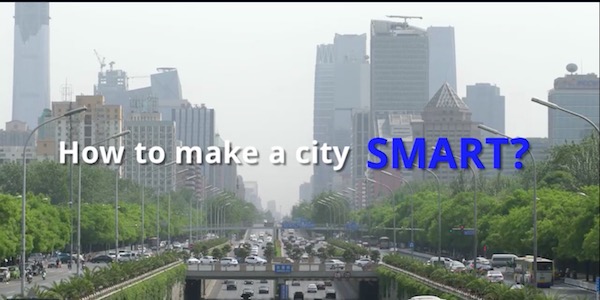(From BisNow DC, Sept 17, 2017)
As American cities look for new ways to use technology and partner with companies to create more appealing and efficient urban environments, innovative new concepts are coming to the forefront.
At Tuesday’s Inclusive Smart Cities Summit, hosted by the Washington D.C. Economic Partnership, speakers pitched topics from smart office environments to public-private transportation solutions to job training programs. Here are five of the best ideas we heard.
1. Use technology and space design to create smarter offices
Discussions about smart cities often focus on public spaces, but with how much time people spend in the office, FIN Digital founder Rakia Finley said work environments are increasingly becoming more automated and efficient.
FIN Digital’s office uses sensors and data analytics to automate tasks that otherwise take up valuable time and keep people from working together. Employees have smart buttons on their desk for clocking in and out, ordering coffee and other small tasks that might otherwise distract them.
“Because we’ve taken what you would be looking at your computer and phone to do, we talk to each other more,” Finley said. “We collaborate more and laugh together more … What our smart office does is allows us to get back in the conversation.”
WeWork also aims to foster more conversation, but Eastern Region General Manager Dave McLaughlin said it uses smart office design to achieve that. In offices that have wide hallways, people can walk by each other with their eyes on their phones and not notice each other, but WeWork has begun to design narrower hallways to force more interaction.
“In a little bit narrower hallway we look up, we make eye contact, chances are we smile, and then when I see you over at the beer keg we chat,” McLaughlin said. “This is how space can serve those goals of creating community and collaboration.”
2. Partner with industry to develop a smarter workforce
If a city wants to land a major company like Amazon to boost its economy, it needs to first focus on developing a smarter workforce. Amazon Web Services Senior Manager Ken Eisner said cities need to improve their educational systems and job training programs, and the first step is the willingness to admit that change is needed.
Once they have done that, he said cities and educational institutions should look to create more partnerships with industries for workforce training initiatives. Eisner suggested industries help design curriculums so students are prepared for jobs, creating more project-based assignments in education that mirror specific jobs and creating more access to apprenticeships and internships to give students real-world experience.
He praised initiatives in Michigan, Kentucky and D.C. as successful models of how cities can partner with industries on job training.
“D.C. provides a fertile environment for this because of the concentration of tech companies, because of stuff like this focus on inclusion,” Eisner said. “Having a mayor’s workforce devoted to tech and innovation and inclusion I think is a really bright point. That partnership between government, education and industry, and a willingness to do that at large, I think is vital.”



